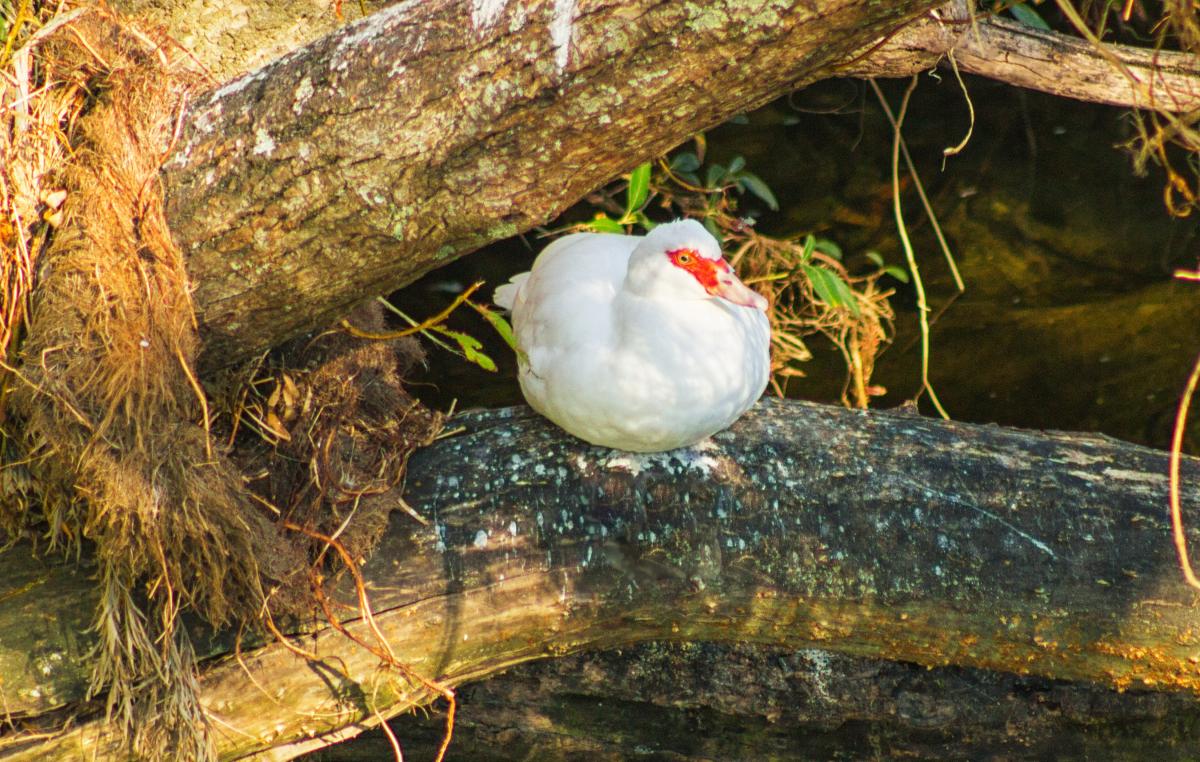I have seen lately people thinking muscovies were just another breed of duck, or even not ducks at all, so I thought I would make this thread to talk about the differences between them and mallard derived ducks.
To start with, both mallards (and all breeds derived from them) and muscovies are ducks. They all belong to the anatidae family, which is the family that includes all ducks, geese, and swans. However, they belong to different genuses, and are in fact entirely different species of ducks.
Even though they are different species, they are still both ducks, just like a wood duck is still a duck despite being a different species from mallards.
The muscovy (C. Moschata) and mallards and their derivatives (A. platyrhynchos) are closely enough related that they can interbreed, like horses and donkeys can. However, just like the offspring of horses and donkeys (mules), the offspring that are produced by crossing muscovies and mallards are sterile. They are either called mules ducks (if the muscovy was the father) or hinny ducks (if the muscovy was the mother).
Since they are different species, there are of course some behavioral differences between the two species. Mallards and their derivatives are more fond of water than muscovies are, and they swim more often. Muscovies are a tree dwelling duck, so they like to roost at night, while mallards sleep on the ground.
Muscovies are very good fliers. Mallards are decent fliers themselves, but most of the breeds that are derived from them cannot fly, with the exception of a couple like Calls.
There is also a difference in their voices - muscovies are very quiet ducks, and mallards and mallard derivatives are louder and have the distinct duck quack.
In addition to these differences, there is also a difference in how long their eggs take to hatch. Mallards and their derivatives, with the exception of Calls and other bantam ducks, take 28 days to hatch. Muscovies take longer, 35 days.
Having owned both species, I can say both have their charms despite their differences





 Love my quiet muscovy. Great information.
Love my quiet muscovy. Great information.
 Ha! Love that! Planning to have them in a part of the orchard with older apple and plum trees with thicker branches, so this is awesome news!
Ha! Love that! Planning to have them in a part of the orchard with older apple and plum trees with thicker branches, so this is awesome news!